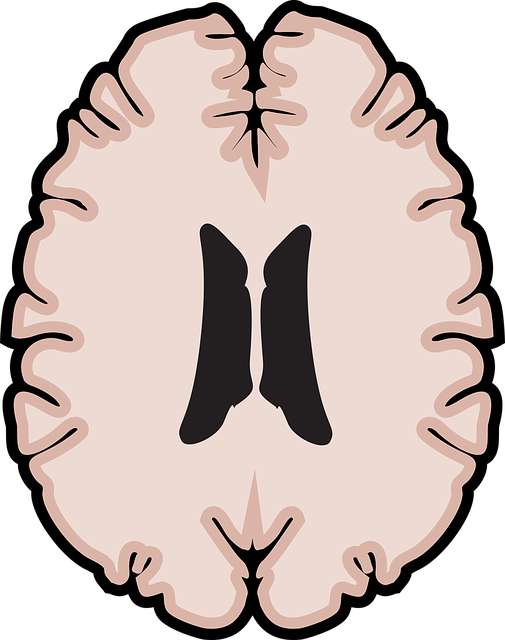Westminster Conduct Disorder Therapy initiatives showcase the power of public awareness campaigns in educating society and driving positive mental health changes. By targeting specific demographics and cultures, using diverse communication channels like social media and community events, and crafting compelling messages with success stories and crisis support, these campaigns reach wide audiences. Evaluating their impact through data-driven methods allows for continuous improvement and broader societal benefits.
Public awareness campaigns play a pivotal role in shaping societal attitudes and behaviors, with profound impacts on various issues, including mental health. This article delves into the intricacies of developing effective campaigns, exploring key components from understanding their role to measuring success. We discuss identifying target audiences, crafting compelling messages, selecting optimal communication channels, and providing practical insights for continuous improvement, all while emphasizing the importance of evidence-based approaches, such as Westminster Conduct Disorder Therapy.
- Understanding Public Awareness Campaigns: Their Role and Impact
- Identifying Target Audiences for Effective Communication
- Crafting Compelling Messages: Content Strategy for Change
- Choosing the Right Channels: Reach and Engage Your Audience
- Measuring Success: Evaluation and Iteration for Continuous Improvement
Understanding Public Awareness Campaigns: Their Role and Impact

Public awareness campaigns play a pivotal role in educating and influencing societal perceptions. They are strategic initiatives designed to bring attention to specific issues or causes, fostering understanding and inciting positive change. These campaigns have far-reaching impacts, acting as catalysts for social transformation and individual behaviour modification. By leveraging various communication channels, they reach broad audiences, dispelling misconceptions, and promoting valuable insights.
In the context of mental health, initiatives like Westminster Conduct Disorder Therapy demonstrate the power of awareness. Such campaigns highlight the importance of emotional intelligence and stress management workshops within organizations. They encourage open dialogue about anxiety relief and similar issues, breaking down barriers and fostering an environment where individuals feel supported. Through compelling storytelling and evidence-based information, these campaigns can literally change lives.
Identifying Target Audiences for Effective Communication

Identifying target audiences is a crucial step in designing effective public awareness campaigns for mental health issues, especially when addressing complex conditions like conduct disorder. Understanding the demographics and psychographics of your intended audience allows for tailored messaging and strategies. For instance, in Westminster, where cultural diversity is thriving, mental healthcare providers must consider the impact of cultural sensitivity in their outreach. Different communities may have unique perceptions of mental illness, influencing how they seek support.
When developing campaigns, it’s essential to incorporate cultural responsiveness by featuring diverse representations in media materials and ensuring language accessibility. This approach not only increases the likelihood of reaching underserved populations but also fosters trust and encourages participation in Westminster Conduct Disorder Therapy programs. Additionally, incorporating success stories or testimonials from within these communities can significantly boost confidence and encourage individuals to seek mental health education and support.
Crafting Compelling Messages: Content Strategy for Change

Crafting compelling messages is a cornerstone of successful public awareness campaigns aimed at promoting mental health and well-being. When addressing complex issues like conduct disorder, for instance, it’s crucial to simplify and personalize the message. In the context of Westminster Conduct Disorder Therapy, for example, the content strategy should focus on empathy, hope, and actionable steps. Emphasize that conduct disorder is a treatable condition and highlight success stories to foster a sense of possibility.
Integrate key messages around Crisis Intervention Guidance and Stress Management to assure audiences that support is readily available. Develop Mental Wellness Coaching Programs that cater to different demographics and needs, ensuring the information resonates with diverse communities. A well-structured content strategy not only educates but also inspires action, encouraging individuals to seek help or offer assistance when needed.
Choosing the Right Channels: Reach and Engage Your Audience

In developing effective public awareness campaigns, selecting the appropriate communication channels is paramount to reaching and engaging your target audience. For issues such as Westminster Conduct Disorder Therapy, understanding where your audience resides – be it social media platforms, community events, or traditional media – is key to delivering impactful messages. Each channel offers unique advantages; for instance, social media facilitates direct interaction and content sharing, while local events provide opportunities for face-to-face engagement, fostering a sense of community and empathy building strategies.
By tailoring content to suit the nature of each channel, campaigns can boost confidence and alleviate anxiety associated with their cause. This could involve sharing relatable stories on social media to spark conversations, designing visually appealing infographics for wide dissemination, or hosting workshops and seminars to offer practical solutions. The goal is to create an inclusive environment that encourages participation and supports mental health initiatives like Westminster Conduct Disorder Therapy, ultimately leading to positive behavioral changes.
Measuring Success: Evaluation and Iteration for Continuous Improvement

Evaluating the success of public awareness campaigns is paramount to understanding their impact and identifying areas for improvement. It involves a systematic process of measurement that goes beyond initial reach or participation rates. By employing robust evaluation methods, organizations like Westminster Conduct Disorder Therapy can assess whether their campaigns are effectively changing behaviors, attitudes, and ultimately, improving societal well-being. This includes tracking shifts in public knowledge about important issues, such as burnout prevention and stress reduction methods, as well as the adoption of conflict resolution techniques.
Iterative improvement is a key outcome of successful evaluation. Once data is collected and analyzed, campaign developers can make informed adjustments to future initiatives. This ongoing cycle ensures that awareness campaigns remain relevant, engaging, and effective in addressing evolving societal needs. By embracing this approach, Westminster Conduct Disorder Therapy can continuously enhance its public outreach strategies, fostering positive change on a larger scale.
Public awareness campaigns play a pivotal role in shaping societal attitudes and behaviors, especially regarding mental health issues like conduct disorder. By understanding the target audience, crafting compelling messages, and choosing the right communication channels, we can effectively reach and engage individuals in need of support, such as those seeking Westminster Conduct Disorder Therapy. Continuous evaluation and iteration ensure that these campaigns remain relevant and impactful, ultimately fostering positive change in communities across the board.











